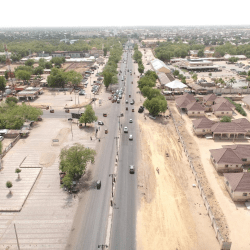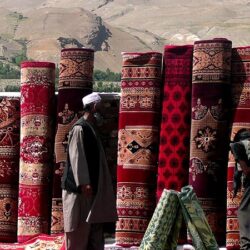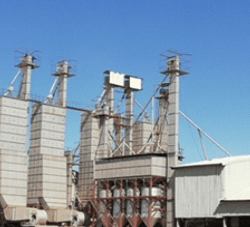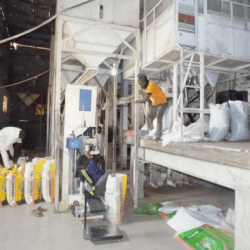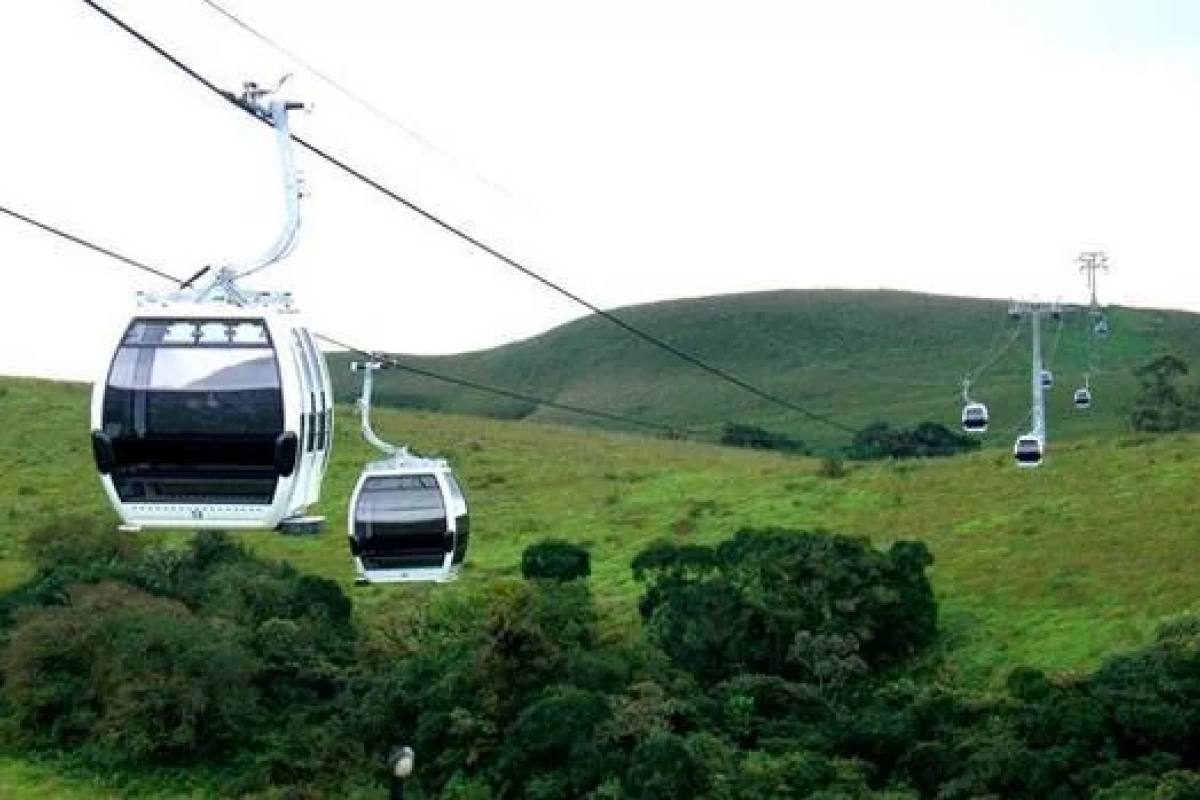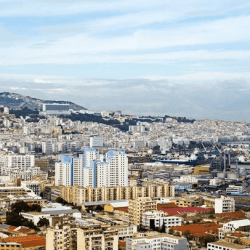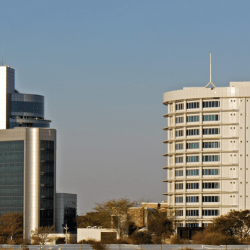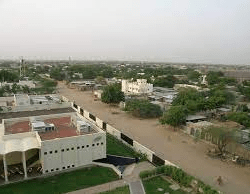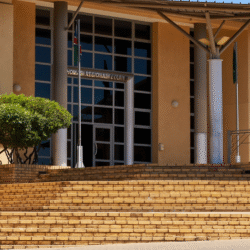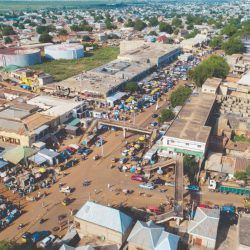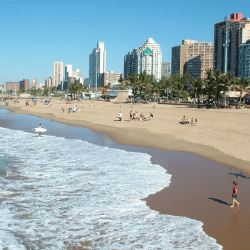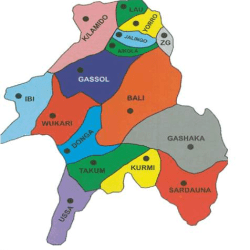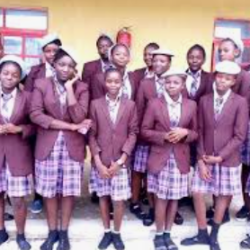The agrarian nature and rich alluvial tract of soil found in most parts of the State makes Taraba State conducive for growing various food and cash crops. Its agrarian economy can sustain the entire Nigeria nation.

The Taraba State Government fully conscious of the role industrialisation can play in the overall development of the State has spared no effort in aggressively developing its industrial base by the establishment of such industries as the Taraba Gas Company.

The State Government also, in liaising with the Federal Government and foreign business is embarking on the construction of the multibillion-dollar Mambilla Plateau Hydro Electric Project which when completed will serve the energy needs of the country and even beyond.

The State Government also, in liaising with the Federal Government and foreign businesses are embarking on the construction of the multibillion-dollar Mambilla Plateau Hydro Electric Project which when completed will serve the energy needs of the country and even beyond.
In addition to breaking new industrial grounds, the State Government under a democratic dispensation is resolutely committed to reviving and consolidating ex-industries such as the Baissa Timber Development Company, the Taraba Tomato Industry in Lau and The Nigerian Beverages Production Company Tea Factory, Kakara in Sardauna LGA.
The State Government has taken the bold step of inviting foreign businesses into the state in order to invest in critical areas like solid mineral exploration and development.
Taraba
Taraba is a State in Nigeria. The capital city is Jalingo,
The State was established in 1991.
It is located in North Eastern Nigeria.
Taraba State was carved out of the former Gongola State and was named after the Taraba river.
Taraba is surrounded by the states of Bauchi and Gombe to the north; Adamawa to the east; Cameroon to the south; and Benue, Nassarawa, and Plateau to the west.

The Mumuye, Jukun, Chamba, Tiv, Kuteb, and Ichen tribes make up the majority of the population, and they are concentrated in the southern portion of the state. The Wurkum, Mumuye, and Kona tribes are concentrated in the northern section of the state.

Taraba State has sixteen (16) local government areas, which include Ardo Kola, Bali, Donga, Gashaka, Gassol, Ibi, Jalingo, Karim Lamido, Kurmi, Lau, Sardauna, Takum, etc.

Also in the state, there are different tribes that are under these local governments, and they include Fulfulde, Kona, Mumuye, Etkywan; Fam; Gbaya, Jukun, Kam, Dza, Tiv, and Fulfulde, among others.

The state has some modern roads running north to Yola, west to Bauchi town, and south to Makurdi town, while the Benue River allows for river transport.
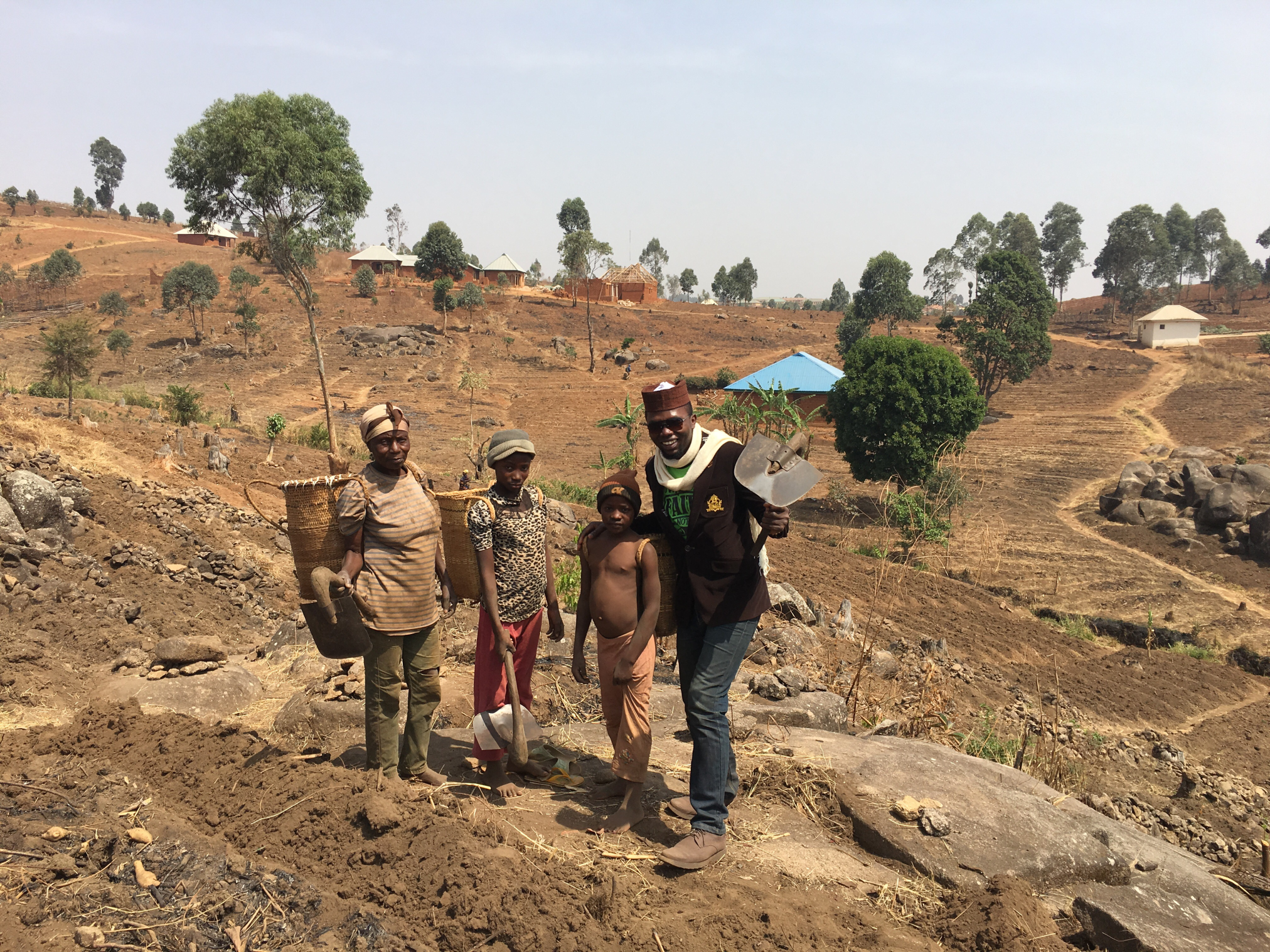
Taraba is located in northern Nigeria and it is surrounded by mountains; the popular one is the Mambilla Plateau.
In the 1980s developed a game reserve named Gashaka/Gumti National Park.
Taraba State was created from Gongola State. This was done during the military administration of General Ibrahim Babangida on August 27, 1991.
During the creation of the state, which was named after Taraba river, there was the need to establish the capital city for it, and then Jalingo was named.
There are over 40 different tribes in the state, speaking the Taraba State language.
The Mumuye, Jukun and Mambilla peoples, among whom there are sizable numbers of Christians, make up the majority of the population of Taraba state.
Prominent tourists areas include Mambilla Tourist Center, Gumpti Park, and the game reserve in Gashaka.
the Nwunyu Fishing Festival in Ibi, which typically takes place in April each year and features events like canoe racing, swimming competitions, and cultural dances, have all seen improvements thanks to the government’s concerted efforts.
There are numerous festivals celebrated by the people of Taraba State, such as the Purma of the Chamba in Donga, the Takum and Jibu culture dance in Bali, the Tagba of the Acha People in Takum, the Kuchecheb of the Kutebs in Takum and Ussa, the Kati of the Mambilla, and many more.
Meanwhile, since Taraba is wealthy and home to numerous ethnic groups, including Fulanis, Kuteb Chamba, Yandang, Mumuyes, Mambila, Wurkums, Janjo, Jukun, Ichen, Tiv, Kaka, Pena, Kambu, kodei, Wawa, Vute, Hausa, and Ndola, it is referred to as “Nature’s gift to the nation.”
The major occupation of the Taraba people is agriculture. Although at the time it was created, the farmers indulged in subsistence farming, now, the farmers are commercially inclined. Thus, farmers in the state cultivate corn, sorghum, millet, rice, yams, sugarcane, and cassava (manioc) (maize). Additionally, river fishing and the herding of cattle, goats, and sheep are significant in Taraba State.
Furthermore, rubber and oil palm trees have been planted in the state’s southwest, while in the far south, the Mambilla Mountain area of the Adamawa Plateau offers a tsetse-free grassy highland that is ideally suited for cattle grazing.
On a similar scale, people also produce livestock in various ways, such as raising chickens, breeding rabbits, and raising pigs. Communities that live along the banks of the rivers Benue, Taraba, Donga, and Ibi fish all year long. Other occupations, including blacksmithing, carving, needlework, mat-making, ceramics, cloth-weaving, dyeing, and cloth-weaving are also practiced throughout the state.
